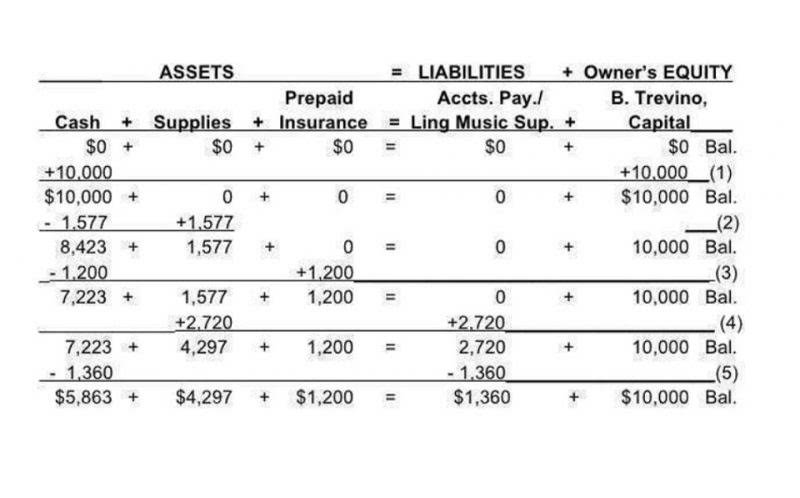Bookkeeping
Free On Board FOB Shipping: Meaning, Incoterms & Pricing
Throughout the transportation process, the seller remains the legal owner of the goods. From this moment, the buyer is legally the owner of the goods and is responsible for any potential loss or damage that might occur during the transit. Generally, FOB is generally specified in a sales agreement and is accounted for under inventory costs. Upper utilizes data-driven insights and cutting-edge tools to https://www.bookstime.com/ streamline delivery routes and enhance logistics.

Disadvantages of FOB
Due to agreed FOB shipping point terms, they’ll have no recourse to ask the seller for reimbursement. When goods are labeled as FOB shipping point, the seller’s role in the transaction is complete when the purchased items are given to a shipping carrier and the shipment begins. Free on board, also referred to as freight on board, only applies to shipments made via waterways and doesn’t apply shipping point to goods transported by vehicle or air.

FOB Destination or FOB Shipping Point?
Conversely, with FOB destination, the title of ownership transfers to the buyer once the goods reach the buyer’s loading dock, post office box, or office building. This means the seller retains ownership and responsibility for the goods during the shipping process until they’re delivered to the buyer’s specified location. Buyers and sellers often confuse FOB by understanding the shipment can be sent by any mode of transportation; this is not correct.

What is the difference between FOB and CIF?
- Therefore, the seller is legally responsible for the products during transport, up until the point the goods reach the buyer.
- It indicates the point at which the title of the goods transfers from the seller to the buyer, and therefore who needs to cover the costs of transit and deal with any issues.
- The Incoterm FOB or Free on Board is an international freight and legal term that determines the point at which the transport obligation shifts from the seller to the buyer.
- Also known as “FOB Shipping Point,” this term means the buyer assumes both ownership and all freight costs right from the seller’s location or originating port.
- With FOB destination, the seller holds onto the goods and the responsibility until they reach the buyer’s location.
- Additionally, FOB Destination may be a good option if the buyer is located far from the seller or if they require expedited shipping.
Only once the goods have safely reached their intended destination does the ownership transfer from the seller to the buyer. Specifically, FOB indicates at which point the responsibility https://x.com/BooksTimeInc (and risk) of the shipped goods transfers from the seller to the buyer. Real-time driver tracking, customer notifications, proof of delivery, and seamless integration with existing systems make Upper a comprehensive solution.
FOB and Transfer of Ownership

Therefore, the seller is legally responsible for the products during transport, up until the point the goods reach the buyer. FOB Destination is different to FOB Shipping Point where the buyer is responsible for the shipping and transportation instead of the seller. In this comprehensive guide, you’ll find key insights into the nuts and bolts of FOB—from its basic meaning to its various designations like FOB shipping point and FOB destination. You’ll learn about freight prepaid options, when freight collect makes sense, and how these terms affect your bottom line and supply chain.
As such, FOB shipping means that the supplier retains ownership and responsibility for the goods until they are loaded ‘on board’ a shipping vessel. Simply put, an incoterm is the standard contract used to define responsibility and liability for the shipment of goods. It plainly lays out how far along into the process the supplier will ensure that your goods are moved and at what point the buyer takes over the shipment process. The key is to keep your shipping documents clear, maintain open lines of communication, and consult experts when necessary.
FOB shipping: who is responsible for what?
Whether it’s “FOB Origin” or “FOB Destination,” these terms spell out whether the buyer or seller pays the freight charges and at what point ownership passes between the two parties. The buyer pays for transportation costs but deducts the price from the final invoice. The seller is liable for the goods during transport until they reach the port of destination and must cover damage or loss if they occur. In this version of the FOB Incoterm, the seller arranges the transport, and the buyer pays for the transportation costs when they receive the goods. The seller is liable for the goods during transit until the port of destination and must cover damage or loss if they occur. With FOB destination, the seller holds onto the goods and the responsibility until they reach the buyer’s location.
